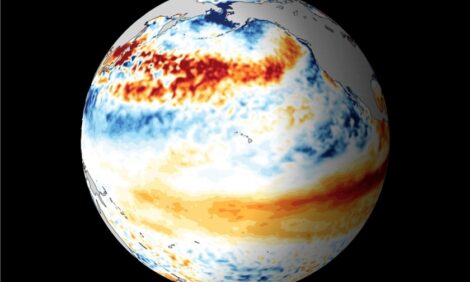



Global Dairy Summit: What is the Dairy Sustainability Framework's role in the global dairy industry?
Brian Lindsay explains the DSF and how every dairy, no matter size or location, can make sustainable improvementsBrian Lindsay, director of the Dairy Sustainability Framework (DSF), based in the UK, spoke to The Dairy Site’s Sarah Mikesell at the Global Dairy Summit in Chicago, Illinois in October 2023.
Tell us about the Dairy Sustainability Framework.
Dairy Sustainability Framework is a global organization based in the UK, established by the dairy industry. It is about monitoring and reporting our continuous improvement and sustainability across the globe.
Currently, the Dairy Sustainability Framework is reporting on 30% of global milk production, and that is more than 50% of global formal milk production that goes through the processing process. We are absolutely global, pre-competitive and collaborative. We do not get into the competitive space at all. It is about aggregated data, building the narrative to demonstrate that dairy is being proactive in its sustainability activities.
As a speaker on a sustainability panel today at the summit, what was your message?
The message was how we need to think outside the box. So often in sustainability, we talk about single issues, like greenhouse gas emissions or water. We have to think about how we, in our activity, are trying to improve sustainability, so we can get more wins than if we just focused on one criterion.
The DSF has 11 criteria. We encourage our members to look beyond the individual criterion they are prioritizing and working on. By saying, if I solve this here, maybe I can solve that over there, as well. We are looking for 1 + 1 equals four or five, as opposed to 1 + 1 makes two.
Let’s talk a little about smallholder farmers. You said in your talk that farms with 100+ cows represent only 0.3 percent of all dairy farms.
When you're talking about working globally on sustainability, it is about that global picture. So maybe it is incremental change in the more developed-area economies. But it's the emerging dairy economies where we can have the greatest impact, be that livelihoods, economics, milk production or greenhouse gas emissions.
So how can the dairy sector use the knowledge and the technology we have? We look at taking that to the emerging dairy nations, adapt it and help them identify ways to incorporate that into their production systems, but importantly, monitor the impact we are having and making sure we are making a difference.
How is DSF progressing this, especially in some of these emerging countries?
We are a monitoring and reporting framework. Each year, a DSF member has prioritized the sustainability criteria they are working on. We have an indicator for each of the criteria, and they need to report to us once a year on their progress on that indicator. We then aggregate that data.
We never talk about any one company or country. We talk about dairy globally; we do not specify where. It is about dairy being a collective and responsible industry, producing great nutrition. Another thing we do is build platforms.
We are about aligning and connecting the dairy sector. How do we help dairy farmers or dairy industries in various parts of the world, based on knowledge generated elsewhere? For example, I often talk about how a water project in Israel just may help dairy farmers in California or Australia. It is about sharing that knowledge at a pre-competitive level. Competition is in their products. Sustainability to the dairy sector is about pre-competitive activity, and how we can all move forward together progressively.
Is there anything you have learned at the conference that has surprised you or changed a perception, given there are people here from more than 60 countries?
More than 1,100 people are at this conference. I believe we are given two ears and one mouth for a reason. We are here to listen, learn and connect, because we are a global industry. We are a billion people strong. There are 133 million dairy farmers globally. By coming together in forums like this, it starts relationship building. Those of us who tried to start projects during COVID on Zoom know, it was very difficult to kickstart work over a virtual platform. Relationships are important.
What surprised me is I still think we have this focus on greenhouse gas emissions. Okay, it is important. We are doing stuff about it; we have more to do. But we have to look at the wider picture on the work the dairy industry is doing on greenhouse gas emissions. How can that help us in other sustainability areas? Dairy has a good story to tell. It can lift people out of poverty. It helps livelihoods. It provides great nutrition. It enables kids to go to school. We have a good story, but we have to think wider than just specific sustainability issues. I have a job to do to help our industry move forward.
Greenhouse emissions are one factor but will it take many opportunities to make a difference?
There is no broad-brush solution. The work we have done in the Pathways to Dairy Net Zero project is we have segmented dairy typologies around the world. We have about six different types of farming systems. We want farmers to be able to look for the options that are right for their farming system.
If you are a pastoralist system in Africa, you might look at genetic improvement or feeding. Whereas, if you are a high-input, high-output system in the US, you may consider anaerobic digestion, enteric methane inhibitors, or things like the technology side of things.
Farmers are looking for answers and looking for solutions, but we can't afford to get these wrong. We are guiding our farmers. We are making a statement: We want to be net zero. But we also are helping them make the right decisions on their farm because we cannot have too many crop failures.


